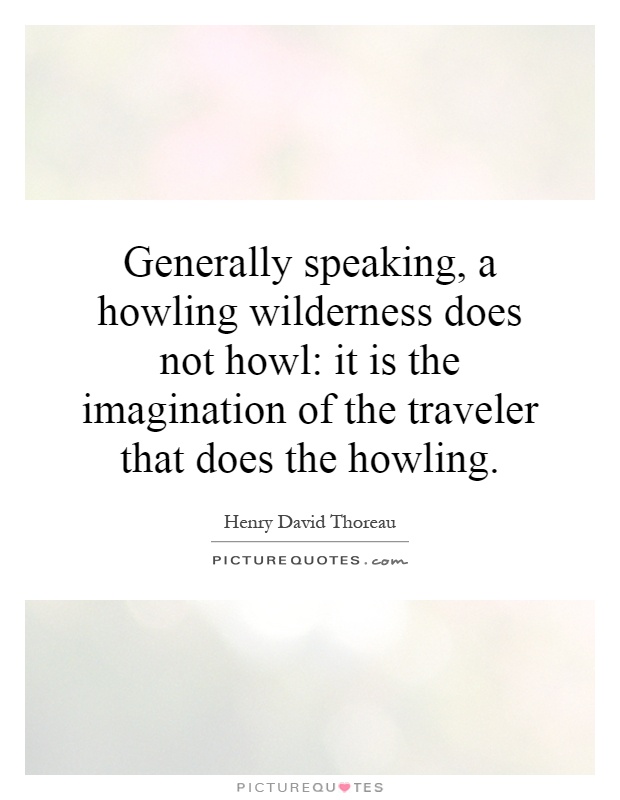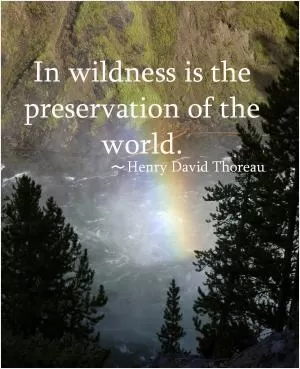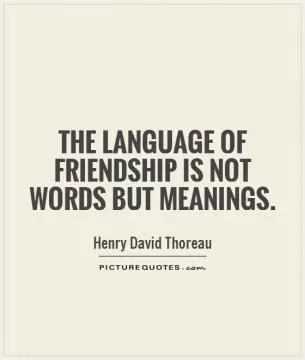Generally speaking, a howling wilderness does not howl: it is the imagination of the traveler that does the howling

Generally speaking, a howling wilderness does not howl: it is the imagination of the traveler that does the howling
Henry David Thoreau, a renowned American philosopher, naturalist, and writer, was known for his deep connection to nature and his belief in the power of solitude and self-reflection. Thoreau's famous quote, "Generally speaking, a howling wilderness does not howl: it is the imagination of the traveler that does the howling," perfectly encapsulates his perspective on the relationship between the natural world and the human mind.Thoreau spent a significant amount of time in the wilderness, particularly during his two-year experiment living in a cabin near Walden Pond. During this time, he immersed himself in the beauty and tranquility of nature, finding solace and inspiration in the simplicity of the natural world. Thoreau believed that the wilderness itself was not inherently frightening or threatening; rather, it was the perception and imagination of the traveler that could transform it into a place of fear and uncertainty.
In Thoreau's view, the howling wilderness symbolizes the unknown and the unfamiliar, which can evoke feelings of fear and anxiety in the traveler. However, he believed that these feelings were not inherent to the wilderness itself, but rather a projection of the traveler's own fears and insecurities. Thoreau saw the wilderness as a place of beauty, peace, and harmony, where one could find a deeper connection to the natural world and to oneself.
Thoreau's philosophy was deeply rooted in transcendentalism, a philosophical movement that emphasized the importance of individualism, self-reliance, and the spiritual connection between humans and nature. For Thoreau, the howling wilderness was not a place to be feared, but rather a place to be embraced and explored with an open mind and a sense of wonder.












 Friendship Quotes
Friendship Quotes Love Quotes
Love Quotes Life Quotes
Life Quotes Funny Quotes
Funny Quotes Motivational Quotes
Motivational Quotes Inspirational Quotes
Inspirational Quotes